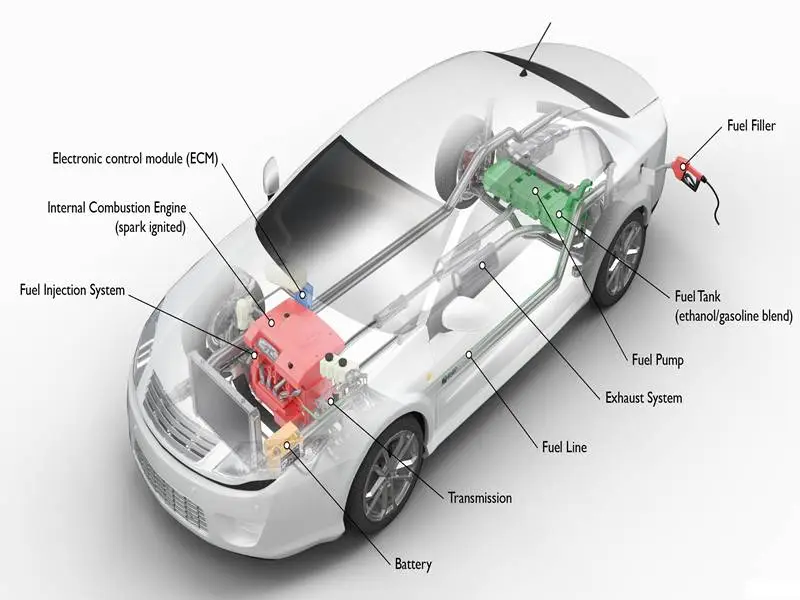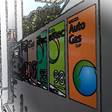
What is Ethanol E85 and Why Consider Using it in Your Car?
Ethanol, more specifically gasoline blends with ethanol in percentages higher than 10%, is beginning to be considered a viable alternative for an ecological improvement of global transport. In addition to its renewable and sustainable origin, it offers greatly improved performance using the same mechanics as any traditional gasoline vehicle.
E85 ethanol is a type of biofuel composed of 85% ethanol and 15% gasoline. This alternative fuel is known for being cleaner and more renewable than traditional gasoline, since it is produced from plant raw materials such as corn and sugar cane. Installing ethanol equipment in a car can be a great option for those looking to reduce their carbon footprint and save on fuel in the long term.
In order to use E85 ethanol, a gasoline car needs to be adapted with a specialized conversion kit that allows its fuel injection and control system to be modified. These kits allow the engine to optimally adjust the air-fuel mixture for E85.
Virtually any vehicle can operate without any problem with ethanol levels in traditional fuel of up to 10%. For higher levels, certain adaptations are necessary because there is the possibility of problems due to degradation caused by alcohol in engine parts such as rubber and sensitive parts.
How an E85 Ethanol Adapted Car Works
To use a fuel with 85% ethanol in the mixture (E85), there are currently cars with a specifically adapted engine. These are known in the industry as Flexible Fuel Vehicles (FFV), FlexiFuel. The use of bioethanol in Brazil over the last 30 years and the strong development in the United States have also contributed to dispelling several myths about the "risks" of ethanol. Bioethanol with an 85% mixture (E85) generates energy equivalent to 105 octane, in a cleaner and better performing way.
It is this superior performance of ethanol used with a high mixture that has led to the use of E100 (100% ethanol) as a fuel for such famous races as the Indianapolis 500, where the best engines in the world are found.
A car adapted to use E85 ethanol works by modifying the fuel injection system and the engine management system. E85 ethanol has a lower energy content than gasoline, which means that a greater amount of ethanol is needed to generate the same amount of energy. Therefore, an adapted engine management system is crucial to allow proper combustion and prevent damage to the engine.
Main Technical Changes when Installing Ethanol Equipment in Car
- Fuel Injectors: Injectors must be able to handle a higher fuel flow due to the lower calorific value of ethanol.
- Oxygen Sensors and ECU Tuning: The engine control unit (ECU) must be reprogrammed or replaced with a compatible one to properly manage the air-fuel mixture.
- Corrosion-Resistant Materials: Ethanol can be more corrosive than gasoline, so it is critical to replace components such as fuel lines and gaskets with corrosion-resistant materials.
Benefits of Installing Ethanol Equipment in a Car
Choosing to install ethanol equipment in your car offers numerous economic and environmental benefits:
- Reduced Emissions: E85 ethanol produces fewer CO2 emissions compared to traditional gasoline, contributing to a reduction in the carbon footprint.
- Less Dependence on Fossil Fuels: Being a renewable fuel, the use of ethanol helps reduce dependence on fossil fuels.
- Savings on Fuel Costs: Although E85 has a lower energy efficiency, its price per liter is usually lower, which can result in long-term economic savings.
- Better Engine Performance: E85 ethanol has a higher octane rating, which improves engine performance and allows for more efficient combustion.
Makes of Equipment for Installing Ethanol in Petrol Cars
There are several brands on the market that offer E85 ethanol conversion kits for gasoline cars. Below are some of the most prominent ones:
- FlexFuel Company: One of the leading companies in Europe in ethanol conversion kits. They offer kits that are compatible with a wide variety of car models and comply with EU regulations.
- Bioethanol Conversion: This company provides conversion kits that include programmable ECUs, high-capacity injectors, and E85-specific oxygen sensors.
- eFlexFuel: Based in Finland, this company is known for its advanced conversion kits that include mobile apps to monitor engine performance and adjust settings.
- Kingblue Technologies: It offers conversion kits for a wide variety of vehicles and stands out for its ease of installation and compatibility with European standards.
- Bi-Fuel Systems: They offer complete E85 ethanol retrofit solutions with high-quality components and specialized technical support.
It is important to select equipment from a reputable brand to ensure the quality and compatibility of the conversion kit, as well as the long-term reliability of the system. car fuel.
Process of Installing Ethanol Equipment in a Petrol Car
Installing ethanol equipment in a car requires technical knowledge and should be done by a professional to ensure the safety and proper operation of the vehicle. Below is a general guide to the installation process:
- Selecting the Conversion Kit: Choose a kit that is compatible with the make and model of your car. It is important to consider the brand reputation and the quality of the components.
- Component Installation: This includes the installation of a compatible ECU, ethanol-tuned fuel injectors, corrosion-resistant fuel lines, and additional sensors if necessary.
- ECU Reprogramming: The engine control unit must be reprogrammed to manage the proper air-fuel mixture for E85.
- Testing and Adjustments: Once installed, the car must undergo rigorous testing to ensure that the engine runs properly on E85 ethanol.
It is advisable to go to a specialized workshop for this type of conversions, since any error in installation could cause damage to the engine or reduce fuel efficiency.
ReferencesReferences
- https://www.flexfuel-company.com
- https://www.eflexfuel.com
- https://www.bioethanolconversion.com
- https://www.kingbluetechnologies.com
- https://www.bifuelsystems.com
- https://www.eea.europa.eu/themes/transport/biofuels





